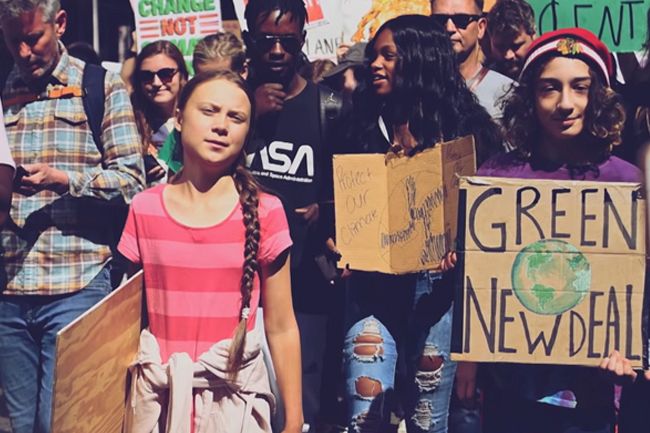We need to teach future generations how to properly understand the effects of fossil fuel power and become more efficient energy consumers, writes Howard Morrison.
BY 1891, the Gold King Mine in the Colorado Rocky Mountains had exhausted locally available timber to fire its boiler, making make steam to power the stampers that crushed the gold bearing rock. Perhaps electricity could be a solution.
Thomas Edison held the patent for a direct current (DC) generator, but it had to be located near the stampers to minimise the power loss from resistance in the wires. And he still needed timber to fire the boiler to make steam to drive the generator. No solution.
Enter George Westinghouse. His company had just patented a generator that produced alternating current (AC). It was called the alternator. Its big advantage was that the electricity could be transmitted long distances with little energy loss.
To spin his alternator, he chose the fast-flowing San Miguel River in the valley below. The river water spun a Westinghouse 750 kW alternator, sending electricity five kilometres up to the mine where a second 750 kW alternator was connected to a shaft that drove the stampers. Problem solved.
This was the first industrial power “grid” and essentially a system similar to what we use today. His solution was by far the single most important engineering achievement for powering our modern life.
As his grid was improved upon, power plants grew in size and were located further and further away from cities and industrial sites. The cheapest and most used fuel to drive them was greenhouse gas-intensive coal.
Here’s where the story becomes relevant to you today.
Westinghouse’s solution changed our mindset. We came to depend on an instant and endless availability of electricity. He effectively flicked the switch that allowed the pursuit of endless economic growth — the holy grail of the world’s developed economies.
As part of those economies, we have to keep selling our “rocks and crops” into the world market, no matter what the CO2 intensity. Climate change now threatens to upend that apple cart, especially for our coal and gas exports.
In turn, this seriously threatens the “more, bigger, better” lifestyle engrained in baby boomers and their greying offspring. But it’s your future at stake, not theirs. Australia is the hottest and driest continent and will most likely suffer a warming world more severely.
Before long, you’ll be handed this poisoned chalice. Greta Thunberg is the paramount example of a young person who has stepped up. As are the millions around the world who walked out of school and hit the streets to make their voices heard.
But what’s next for you? What can you do right now in Australia in the midst of a pandemic that’s more than just yelling louder about the same climate change issues?
I’m no expert, but after 50 years of thinking about and observing the climate changing, I’m left with only one idea to offer — and here it is.
You need to articulate just one clear climate change message that moves the dial for my generation. The vast majority of my generation are incapable of comprehending what life might be like when you are their age.
But back to Westinghouse for a second. His grid essentially took away our ability to understand energy. We’ve become energy illiterates, just when we desperately need to understand it the most. If only we could see electricity like flowing water, how much easier would it be?
Without understanding where and how your power is generated and transmitted, how you use it, how you could use it more efficiently and how many emissions are created along the way, your energy future is given over to boardrooms whose first concern is always economic.
We can’t be part of a change that we don’t understand.
To get a seat at the climate change table, you need to demand that energy education become an urgent national priority in the National Curriculum beginning at year one, with progressive understanding through to adulthood.
It’s a no-brainer. No political party or corporate entity in their right mind would oppose you. And the cost is infinitesimal when compared to all the unproven technological fixes being touted.
And here’s my in-your-face message. Every six years, there’s an Australian National Curriculum Review. It’s happening right now. Miss this doable opportunity and you’ll remain on the sidelines.
But it’s results that count. If you make energy education happen, we’ll learn things that matter. We’ll learn to calculate our daily energy load and our greenhouse emissions profile. We’ll be able to make informed decisions about our consumption habits.
And, as energy-guzzling overconsumption becomes less and less tenable, these newly developed skills will help us become more efficient consumers. Renewable energy powering a personal energy-efficient lifestyle — an essential combination for your survival.
But you’ll have to do lots more to repair the damage that fossil fuel burning has caused.
Like designing affordable buildings for a warming Australia instead of continuing to tart up the same old oversized boxes with attached triangular roofs.
Or maybe you’ll develop a compressed air vehicle (CAV) industry — urban vehicles that need no batteries and produce zero emissions. An Australian prototype is already in the wings.
In the end, climate change will affect you many times more than the COVID-19 pandemic. So it’s your choice now — act or do nothing.
Howard Morrison tries to make complex climate change issues understandable for everyone. He’s not an academic or expert, but with a lifetime of “hands-on” energy and environmental experience, he often sees things through a different lens.
Related Articles
- Corporate 'greenwashing' a major obstacle in climate change fight
- Politicians still refuse to take action on climate disaster
- Climate crisis putting a billion children at ‘extremely high risk’
- Teenager steps up as AGL board nominee
- How your super fund could be destroying the planet
 This work is licensed under a Creative Commons Attribution-NonCommercial-NoDerivs 3.0 Australia License
This work is licensed under a Creative Commons Attribution-NonCommercial-NoDerivs 3.0 Australia License
Support independent journalism Subscribe to IA.













